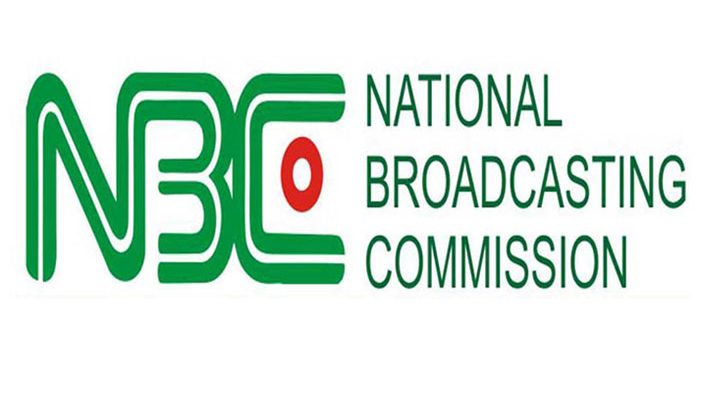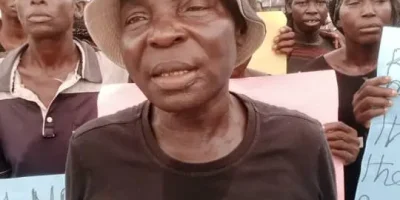Kenny EMMAN
President Muhammadu Buhari has been called upon to urgently withdraw the threat to revoke the licenses and shut down the operations of 53 broadcast stations in the country over alleged failure to renew their licenses.
Socio-Economic Rights and Accountability Project, SERAP, made the call in a letter dated August 20, 2022, by its Deputy Director, Kolawole Oluwadare.
SERAP urged Buhari “to urgently instruct Mr Lai Mohammed, Minister of Information and Culture, and the NBC to withdraw the threat or face prosecution.
“The threat to shut down 53 broadcast stations is neither necessary nor proportionate. If carried out, it would offend the legal principles of equity and equality of access to mass communication.”
SERAP said, “Under the Nigerian Constitution 1999 [as amended] and international human rights law, freedom and diversity must be guiding principles in the regulation and licensing of broadcasting. The threat to shut down 53 broadcast stations is entirely inconsistent and incompatible with these principles.”
According to SERAP, “Revoking the licenses of 53 broadcast stations and shutting down their operations because they have not renewed their licenses would undermine the rights of millions of Nigerians to express their thoughts.”
The letter, read in part: “It would also violate Nigerians’ right to seek, receive, and impart information and ideas of all kinds, in any medium they choose.”
“We would be grateful if the requested action is taken within 24 hours of the receipt and/or publication of this letter. If we have not heard from you by then, SERAP shall take all appropriate legal actions to compel your government to comply with our request in the public interest.”
“The NBC Act and Broadcasting Code cannot and should not be used in a manner that is inconsistent and incompatible with plurality of voices, diversity of voices, non-discrimination, and just demands of a democratic society, as well as the public interest.”
“When money or economic considerations are the major criteria for renewing licenses for broadcast stations, the fundamental principles of equal access to the media, pluralism and diversity are compromised.
“Broadcasting is a means of exercising freedom of expression. Any restrictions on freedom of expression must meet the requirements of legality, necessity, and proportionality. Any regulation of broadcasting must respect these three requirements.
“With just months to go before the general elections, scheduled for February 2023, your government ought to do more to create conditions for a free and fair vote. This includes demonstrated commitment to freedom of expression.
“Shutting down 53 broadcast stations on the pretext of non-renewal of their licenses is neither necessary in a democratic society nor proportionate to meet the constitutional and international guarantees of freedom of expression.
“The right to freedom of expression is based on the right to establish or use a media outlet to exercise freedom of expression and on society’s right to have access to a free, independent, and pluralistic media that allows for the most and most diverse information.
“Rather than using the NBC Act and Broadcasting Code to shut down 53 broadcast stations, your government ought to use these frameworks to promote the broadest, freest, and most independent exercise of freedom of expression for the widest variety of groups and individuals possible.
“SERAP believes that the media including the affected 53 broadcast stations play an essential role, as they allow millions of Nigerians to access both the relevant information and a variety of perspectives that are necessary for reaching reasonable and informed conclusions on matters of public interest.
“Indeed, the media has the task of distributing all varieties of information and opinion on matters of general interest.
“The public has a right to receive and assess this information and opinion independently. Therefore, the existence of a free, independent, vigorous, pluralistic, and diverse media is essential for the proper functioning of a democratic society.
“Freedom of expression includes the public’s right to receive, and the right of those who express themselves through a medium of communication, to impart the greatest possible diversity of information and ideas.
“The strengthening of the guarantee of freedom of expression is a precondition for the exercise of other human rights, as well as a precondition to the right to participation to be informed and reasoned.
“It is the mass media such as the 53 broadcast stations that make the exercise of freedom of expression a reality. This means that the conditions of its use must conform to the requirements of this freedom.
“Therefore, any regulation of the media, including licensing, must be evaluated according to the guidelines and directives imposed by the right to freedom of expression.
“If carried out, the threat by NBC would impermissibly restrict the right to seek, receive and impart information and ideas to a greater extent and would therefore violate freedom of expression.”
National Broadcasting Commission, NBC, had last week revoked the licenses of the 53 broadcast stations and threatened to shut down their operations within 24 hours over alleged N2.6 billion debt.
The NBC subsequently, asked the stations “to pay all outstanding license fees on or before August 23, 2022 or shut down by 12am on August 24.”
The 53 affected broadcast stations include: Rhythm FM (Silverbird Communications Ltd) FM Abuja; Rhythm FM (Silverbird Communications Ltd) FM Lagos; Rhythm FM (Silverbird Communications Ltd) FM Yenagoa; Rhythm FM (Silverbird Communications Ltd) FM Port Harcourt; and Rhythm FM (Silverbird Communications Ltd) FM Jos.”








Comments